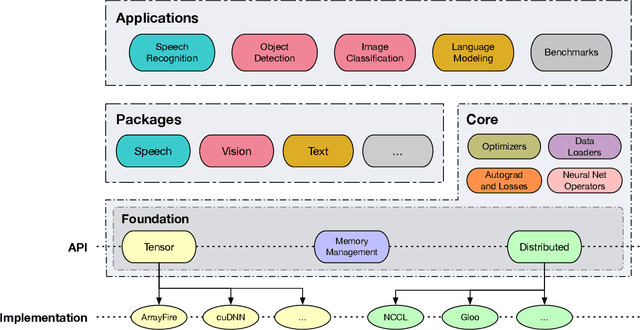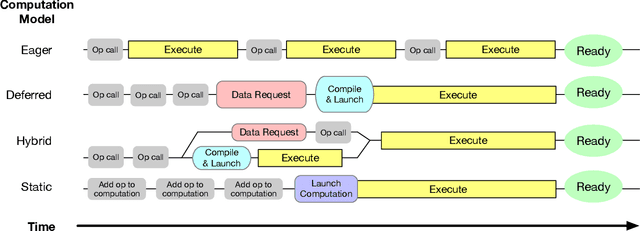Jeff Cai
Flashlight: Enabling Innovation in Tools for Machine Learning
Jan 29, 2022



Abstract:As the computational requirements for machine learning systems and the size and complexity of machine learning frameworks increases, essential framework innovation has become challenging. While computational needs have driven recent compiler, networking, and hardware advancements, utilization of those advancements by machine learning tools is occurring at a slower pace. This is in part due to the difficulties involved in prototyping new computational paradigms with existing frameworks. Large frameworks prioritize machine learning researchers and practitioners as end users and pay comparatively little attention to systems researchers who can push frameworks forward -- we argue that both are equally important stakeholders. We introduce Flashlight, an open-source library built to spur innovation in machine learning tools and systems by prioritizing open, modular, customizable internals and state-of-the-art, research-ready models and training setups across a variety of domains. Flashlight allows systems researchers to rapidly prototype and experiment with novel ideas in machine learning computation and has low overhead, competing with and often outperforming other popular machine learning frameworks. We see Flashlight as a tool enabling research that can benefit widely used libraries downstream and bring machine learning and systems researchers closer together.
wav2letter++: The Fastest Open-source Speech Recognition System
Dec 18, 2018



Abstract:This paper introduces wav2letter++, the fastest open-source deep learning speech recognition framework. wav2letter++ is written entirely in C++, and uses the ArrayFire tensor library for maximum efficiency. Here we explain the architecture and design of the wav2letter++ system and compare it to other major open-source speech recognition systems. In some cases wav2letter++ is more than 2x faster than other optimized frameworks for training end-to-end neural networks for speech recognition. We also show that wav2letter++'s training times scale linearly to 64 GPUs, the highest we tested, for models with 100 million parameters. High-performance frameworks enable fast iteration, which is often a crucial factor in successful research and model tuning on new datasets and tasks.
 Add to Chrome
Add to Chrome Add to Firefox
Add to Firefox Add to Edge
Add to Edge